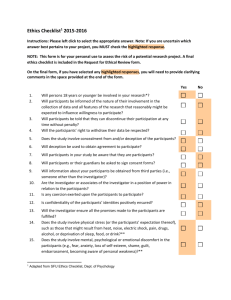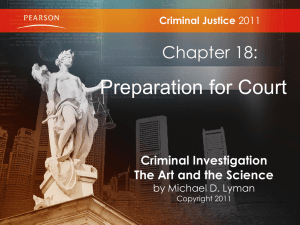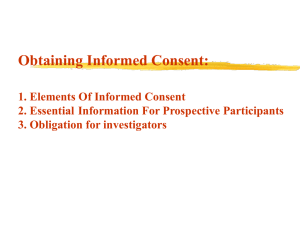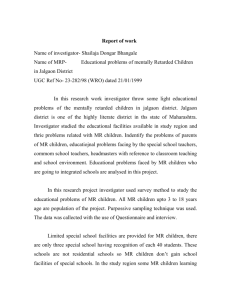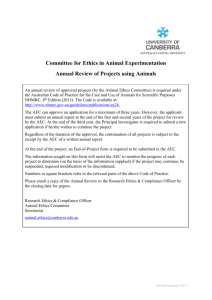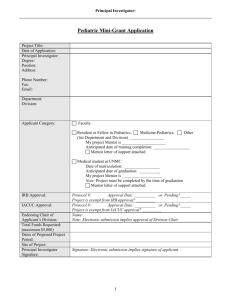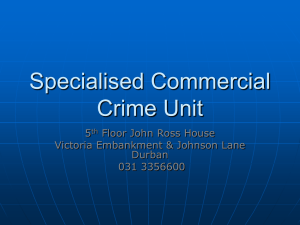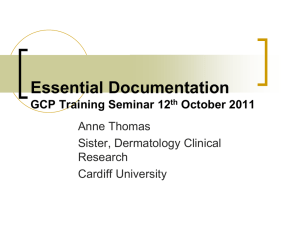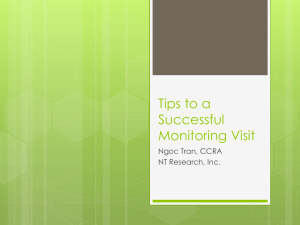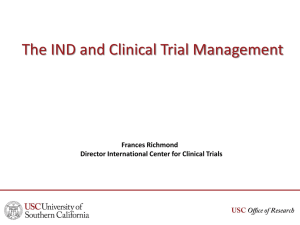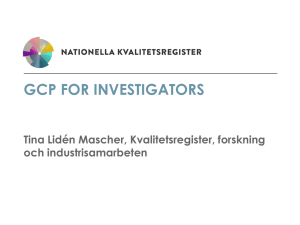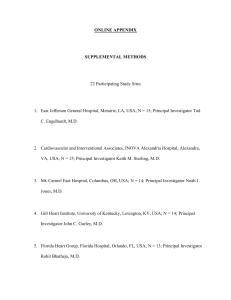Topic 15
advertisement
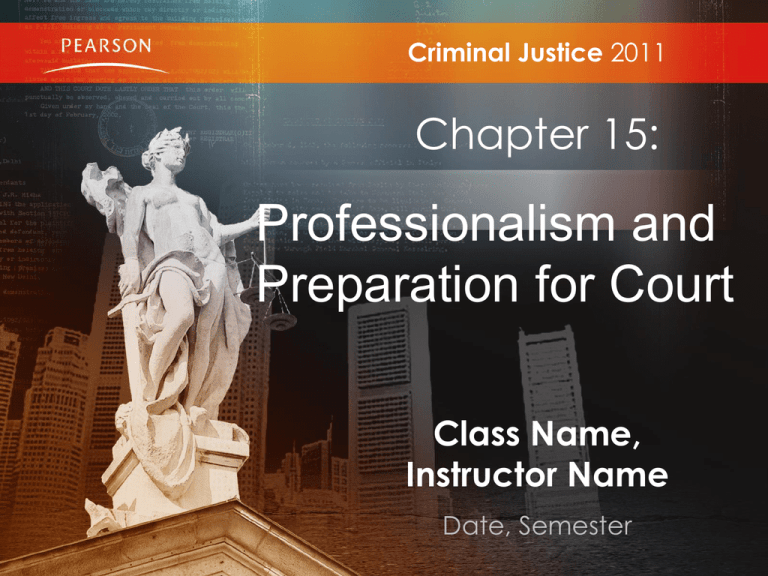
Criminal Justice 2011 Chapter 15: Professionalism and Preparation for Court Class Name, Instructor Name Date, Semester CHAPTER SUMMARY 15.1 Describe the role of the investigator in court. 15.2 Outline the steps investigators take to prepare for court. 15.3 : Describe appropriate courtroom demeanor and conduct during testimony. 15.4 Summarize investigator ethics and misconduct. Learning Objectives After this lecture, you should be able to complete the following Learning Outcome 15.1 Describe the role of the investigator in court. 15.1 The Role of the Investigator in Court The investigator is the conduit for information… 15.1 Court Processes Pre-trial Hearings Preliminary Hearings Trials Sentencing Hearing 15.1 The Role of the Investigator in Court Investigator Prosecutor Learning Objectives After this lecture, you should be able to complete the following Learning Outcome 15.2 Outline the steps investigators take to prepare for court. 15.2 Preparing for Court Review notes and reports Review all evidence, including photos and mug shot Revisit the scene if possible Meet with the prosecutor prior to testifying Add picture of a Police report 15.2 Preparing for Court Investigators may also be required to prepare witnesses and victims prior to hearings or trial. 15.2 Court Etiquette A few rules… Be on time and know where you are going Don’t discuss the case in public or with someone you don’t know Treat everyone with respect… you might be talking with the defense attorney or a jurror Dress appropriately Don’t discuss your personal life – it may come up in court!!! Learning Objectives After this lecture, you should be able to complete the following Learning Outcome 15.3 Describe appropriate courtroom demeanor and conduct during testimony. 15.3 Courtroom Etiquette Be yourself, not stiff or robotic, don’t try to be humorous Address everyone formally: Your honor, sir, m'am, the defendant, Mr. Jones, etc… Look at the person who is asking the question, then look at the fact finder (judge or jury) when answering Don’t drink water, even if it is offered, sit up straight, and don’t use slang unless you are quoting someone 15.3 Courtroom Testimony: #1 Rule Tell the Truth! 15.3 Testimony Defense attorneys learn how to capitalize on officer’s mistakes in court, here are some strategies to avoid mistakes: Confine testimony to facts Avoid expressing opinions unless asked Don’t volunteer information answer only the question Speak calmly even if unnerved Use plain, simple language – no police slang Keep your composure (never lose your temper) Learning Objectives After this lecture, you should be able to complete the following Learning Outcome 15.4 Summarize investigator ethics and misconduct. 15.4 Investigator Ethics Determining the truth VS Obtaining a conviction 15.4 Investigator Ethics Ethical Investigative Methods Following the rules of evidence Following search and seizure rules Testifying truthfully 15.4 Investigator Ethics Unethical Investigative Methods Omitting exculpatory information in reports or while testifying “Fudging” on reports Exaggerating facts or misrepresenting facts Manufacturing evidence or lying during testimony 15.4 The Law Enforcement Code of Ethics 15.4 Investigator Misconduct Suspension Termination from the department Sued in state civil court or federal court under 42 USC Section 1983 Add picture of A person in jail or a Jail cell here please Criminal Prosecution 14.5 Investigating Computer Crime CHAPTER REVIEW 15.1 Describe the role of the investigator in court. 15.2 Outline the steps investigators take to prepare for court. 15.3 : Describe appropriate courtroom demeanor and conduct during testimony. 15.4 Summarize investigator ethics and misconduct.
